- Home
- Jen Lancaster
Jeneration X: One Reluctant Adult's Attempt to Unarrest Her Arrested Development Page 7
Jeneration X: One Reluctant Adult's Attempt to Unarrest Her Arrested Development Read online
Page 7
I’ll always be grateful to my friend’s mom who worked for the HMO. She was kind enough to give my résumé directly to the hiring manager instead of having to navigate HR. The introduction got me in the door and I’d be remiss if I didn’t mention it.
In 1996, Larry Page and Sergey Brin were a couple of nerdy PhD students kicking around the Stanford campus while I was getting ready to graduate. It would be a solid two years until they got their first round of venture capital to start up the company that eventually became Google. What I’m saying is that researching a company wasn’t as easy as typing a few lines into a search engine back then. I couldn’t ping the Dun & Bradstreet database on my Android phone nor could I Facebook stalk the hiring manager to find our common ground, like how she was really into Bob Mould and ER.
Everything I knew about the HMO came from me skulking around the basement of the Purdue University libraries, scanning sheet after sheet of microfiche. Information was hard to come by back then, so the onus was on me to sell myself because I wasn’t impressing anyone with my mad library skills. I spent days poring over my management textbooks and practicing sample interview questions.
Ultimately, I was successful in being hired on my own merits.
Turns out, even though I got the job, I hated the job. For six months, my professional life revolved around keeping the physician provider manual up-to-date and my days were endless, filled with calling office staffs to inquire if they were located on Sheridan Street or Sheridan Road. It was crazy-making and I wonder if I wouldn’t have been happier as a waitress. At least I’d get a shift drink at the end of the day.
Around that time, my friend’s mom landed an incredible gig at a top-tier consulting firm and it was everything everyone in my company dreamed about. I’m talking serious Golden Ticket here. As I watched her pack her desk, all I could say was, “Take me with you!”
To which she replied simply, “You’re not ready. You need to serve your time here before you can move on.”
As I’ve built my career, first as an executive, and then as an author, I’ve never forgotten that piece of advice.
I don’t know what it’s like to be searching for a job now right out of college. In a lot of ways, because of access to information, it has to be easier than trawling around a basement, squinting at microfiche. And yet, because technology’s leveled the playing field, it must be challenging as well, so I respect anyone who takes a creative approach in trying to make it. When it’s appropriate and when I can, I do my best to help those who ask.
What I don’t respect is the portion of Generation Y—and to be clear, I believe it’s only a portion and that there are plenty who shouldn’t be painted with this brush—who’ve grown so lazy and entitled that they can’t even be bothered to try.
That brings me to Ashley.
Ashley embodies everything I loathe about the Millennials. Following, you’ll find the letter she blast-e-mailed to a number of successful contemporary authors [Including me.] a couple of years ago. (My comments are in italics.)
Hi, my name is Ashley and I’m currently working on my first novel. Writing a novel has always been a dream of mine, but I’m pretty nervous and worried that I’m going to fail. I was hoping that you would answer the following questions for me, to help me get started?
1. How do you develop your characters? Are they people you know?
I write nonfiction which seems like it would be obvious by the word “memoir” on the cover of each of my books, but apparently not. Since I write about real people, the characters pretty much develop themselves.
2. How do you come up with their names?
Really, most of the credit goes to their parents.
3. Did you have any formal training in order to become a writer? Classes? A degree?
Yes.
4. How do you get ideas for stories?
How do you not get ideas for stories?
5. What do you consider the most important principle of fiction?
This is something I’ve never thought about considering I don’t write fiction. [Okay, fine, I do now, but didn’t at the time.]
6. How do you, when writing dialogue, make sure that each character sounds like a unique person?
I, when writing dialogue, try to phrase things in a way that sounds completely natural. Because who wouldn’t, when writing dialogue, try to make conversations sound conversational? Again, when writing dialogue, it’s easier to make unique individuals sound like unique individuals when they are unique individuals. When writing dialogue.
7. How do you set up your books? Do you outline them first or do you have an idea and just go with it?
From tallest to shortest, left to right, with a heavy bookend butted up against the small end.
Oh, wait. I answered that before I read the whole question.
I find ideas overrated. Outlines, too.
8. How do you decide how long a book should be?
Well, I certainly wouldn’t spend ten seconds Googling “how long is a novel?” to find out what the industry standard is. Instead, I’d e-mail John Grisham.
9. How do you decide on a title for your book?
Scotch.
10. How do I go about getting an agent? Where do I look for one?
Obviously you look for one by asking me. (I keep them in my guest room.)
11. How do I know which agent is best for me?
I’m going to go out on a limb here and say this probably won’t be an issue.
12. How much should I expect to pay an agent to represent my book?
You should pay them whatever they ask, because, again, a ten-second Google search on “how much do I pay a literary agent?” wouldn’t reveal that an agent works for you and only gets paid once you sell your writing.
13. Will an agent expect me to sign a contract? Should I sign one?
Yes, in blood. Yes, right before you give them a blank check.
14. How & why did you become a writer?
Because I wanted to bring back the ampersand.
15. Does this process ever get easier?
No.
16. Have you ever doubted yourself while writing? If so, how do you get over it?
Yes. Scotch.
17. What should my manuscript look like?
Um, about 62, dark, neatly trimmed hair, well polished shoes, and eyes that crinkle when he smiles.
Shit, I just described my husband.
I guess I don’t understand the question.
18. How long did it take to publish your first book?
I certainly never mention this in any of the books I’ve written so it must be that I don’t know the answer.
19. Do you typically do a lot of research for your books?
Typically.
20. What is the hardest part of writing for you? The easiest?
The hardest part is trying not to be an asshole when people send asinine e-mails. The easiest is cashing checks.
21. Do you have any favorite authors? Books?
Pfft, writers don’t read. And if they did, they certainly wouldn’t detail all the stuff they loved on their Web site and in their books.
22. I’m pretty nervous about writing my book and trying to get it published. I guess I don’t have much for self-confidence when it comes to this. Do you have any advice?
Scotch.
FYI, I didn’t send this to her, tempting though it was.
Instead, I exercised a heroic amount of self-restraint and demonstrated maturity by e-mailing this reply:
“Ashley, this is not how you become a writer.”
The great irony here is that Ashley had the nerve to tell me that I was out of line, like I’m the one at fault because she lacked the willingness or intellectual curiosity to make any effort to become a writer outside of finding my e-mail address… like I should ignore my current deadlines in order to share my hard-won knowledge of the publishing world with someone who hasn’t even bothered to read one of my books.
Frankly, I’m shoc
ked to have heard back from her and not one of her helicopter parents who’ve clearly been good-jobbing her to the point where she feels like the world not only revolves around her, but also owes her the benefit of its collective experience.
So, Ashley, please understand there are plenty of Millennials out there who don’t share your nonexistent work ethic.
They recognize that technology is only part of the equation and it’s to be used in addition to, and not in lieu of, making an effort.
And they’re going to eat you alive.
Reluctant Adult Lesson Learned:
You’re not an asshole for demanding that Generation Y pay their dues, regardless of what Ashley thinks.
C·H·A·P·T·E·R E·I·G·H·T
A Barbie Girl in a Barbie World
“Excuse me, ma’am?”
I’m sitting at my desk, deep in concentration, trying to make sense of what to pack and what to pitch.
These drawers are shameful. I don’t know how I can be so organized in some aspects of my life and so utterly disordered in others. Every contract I’ve ever signed, sorted by dates and dollar amounts, lives in a tidy bundle in the bottom file drawer. They’re next to folders for all bills we’ve paid in the last three years, chronologically ordered, time-stamped with check numbers and, if paid online, attached to confirmation receipts.
Yet one drawer up from that is an office supply graveyard, brimming with dead pens and old stamps and expired prescriptions. I’m talking business cards from people I can’t recall meeting and Post-it notes covered in random sums, surrounded by expired gift cards and rusty paper clips and the world’s oldest pack of gum, all shellacked into one giant mass by an oozing bottle of clear nail polish.
Pathetic.
I’m not a pack rat—really, I’m not, although sometimes in an effort to be more efficient, I trend that way. For example, my office is on the second floor and that’s where I tend to spend most of the workday. Because it’s located an entire flight of stairs away from the filtered water on the fridge door, I find myself going thirsty rather than taking the trek to the kitchen.
(Yes, I understand exactly how lazy this is.)
(Do I need to remind anyone of how I once considered hiding a bucket in the first floor pantry of our old town house rather than climbing twelve stairs to the bathroom?)
(Fletch wouldn’t let me, by the way, which is bullshit because I have a pretty good idea of what went down in the mop sink when Fletch would drink beer in his basement man cave.)
Anyway, I came up with a rather elegant solution. I’d buy a case of water and store it upstairs. Ergo I’d never get thirsty to the point of dizziness again. Genius! [A tiny bit pathetic, but mostly genius!]
I bought the water, brought it upstairs, and deposited it on the guest bathroom counter where it was profoundly in the way for the next few days. Although I shower in the master bathroom down the hall, I do everything else in here. Fletch is a bona fide bathroom hog and there’s nothing more annoying than having to stay up an extra half hour waiting to floss while he’s busy reading War and Peace on the mug. [If anyone out there shares a bathroom with her husband, I implore you to either move to a larger space or add on to your existing space because this is the key to marital bliss.]
The problem with my genius solution is that I had to work around the bulky case when I brushed my teeth, washed my face, conducted whisker patrol, [Shut up.] etc., so I needed to find a place to store it. I thought the laundry room might work, but it was so tiny that I’d have to rearrange everything in the cabinets and that smacked of the exact type of effort I hoped to avoid.
Turns out the solution to my problem was right next to me. I drew back the shower curtain in front of the unused guest tub and placed the case in there, spic, span, and out of the way. Added bonus? If one of the bottles started to leak, the water would go right down the drain. Again, genius!
When Fletch arrived home, I proudly whipped open the curtain to show him where I’d stashed the water.
He slowly looked from the case to me. After a long pause, he finally responded, “You’ve decided to store items in an empty tub. Congratulations. You’ve just taken the first step to seeing yourself on Hoarders in twenty years.”
I moved the bottles. I’d rather be thirsty than on TV for the wrong reasons.
I’m so lost in thoughts about accidentally becoming one of those cat-flattening hoarders [There’s always at least one flat cat on those shows. Always.] that the woman in the doorway has to clear her throat to grab my attention.
“Oh, gosh, I’m sorry. What can I do for you?” This lady is part of the team busy packing up our house for the move. We thought we could do it all ourselves but we quickly became so bogged down in the decision-making process that we fell behind schedule and had to call in experts.
The packer appears somewhat perplexed, which is odd. Thus far she’s known how to pack everything from CD collections to a free-range assortment of Christmas ornaments. Fletch and I have been awed for the past day as she and her crew systematically disassemble every bit of our house, so I wonder what could have possibly thrown her off her game.
“Ma’am, what would you like for me to do with… your head?”
She holds up my blond, bodiless Barbie styling head, ordered one night years ago while on an Ambien trip. I’ve since learned that I can’t be trusted to be near a computer while on prescription sleeping medication, so I made sure to move my computer as far away from my bed as possible. (In fact, in the new house, my office will live on an entirely different floor.)
As for the Barbies, I simply tell everyone that I’m a collector. Of course, true collectors never take their prizes out of the box to see if they can finally master the art of cutting bangs, but whatever.
“Just give it to me and I’ll deal with it,” I say all businesslike and officious, quickly stuffing Barbie into one of the bags we’re moving ourselves. Then I try to look busy so she doesn’t ask why a forty-two-year-old woman is still playing with dolls.
While I attempt to chisel apart my office supplies, it occurs to me:
I should find a more grown-up hobby.
Between moving and unpacking and settling into my first real home, I sort of forget about my deep and abiding love of all things Barbie. I still keep my Mad Men Barbies on display because they’re so impeccably assembled. I mean, Miss Joan is wearing a tiny bustier and seamed stockings! Betty has a wee gold compact with a mirror inside! That’s just badass at any age. But the rest of my collection lives in the closet and has seen the light of day only when friends’ daughters have visited.
I can’t say that I fell out of love with my Barbies but there’s something about writing my first mortgage check that made me go, “You know what? Not so into the toys anymore.”
Plus, many of the enriching activities I learned about while writing My Fair Lazy actually stuck. Turns out I’d rather spend time crafting my own elaborate updo than Barbie’s, particularly when it means I’m going somewhere fancy; convenient because… Joanna and I are opera aficionados now!
Okay, by aficionados, I mean we went once but we both seriously dug it! The thing no one tells you about the opera is how many cocktail breaks are involved. With multiple intermissions, one never needs to lose one’s buzz and champagne makes everything better.
We saw A Masked Ball in December and were absolutely taken by the spectacle of it all. Between the music and the costumes and the set, the whole night left us breathless. [Oh, and we found out my friend Caprice was wrong and it actually isn’t appropriate to shout, “Show us your tits!” after a particularly stirring solo.] As much as I love to people watch, the opera is the perfect place for it because every walk of humanity is represented, at least sartorially. There were folks from kids in jeans to men in tuxedos, capes, and big top hats, and all fashions in between.
Because we really want to make tonight’s showing of Carmen special, we’re treating ourselves to a hotel room. I want to do it up right because in the fifteen y
ears I lived in town, I never once stayed anywhere except my own apartments. So I figure if I’m going whole hog, I’ll book us at the Peninsula.
Joanna and I debated whether or not we wanted to share a room, but we realized we spent our entire freshman year in an eight-by-ten cinder-block dorm room, and that’s without the benefit of room service or seven hundred fifty thread-count sheets, so we’d probably manage being together for sixteen hours.
Before the show, we have dinner at the Purple Pig, a restaurant known for charcuterie. We sit at a community table and make friends with the conventioning Minneapolis-area anesthesiologists sitting around us—sharing a couple of bottles of wine and bites of a sugar-seared rib eye. [Sounds so wrong but tastes so right.] The doctors are leery about our order of roasted marrow, so they leave us to sample it ourselves.
Truly? My stomach turns a little when the plate is served. There’s a big round bone with a gelatinous blob of grayish brown in the middle, paired with slices of bread and a bowl of chunks of Himalayan salt. Tentatively we spread and salt the goo, and with our napkins at the ready, we taste it at the same time.
And then we lose our minds.
The marrow is why meat cooked on the bone is always so much more delicious than its filleted counterparts. Marrow is what gives braised short ribs their flavor. Marrow is the essence of beef and eating it is like biting into a thousand pot roasts all concentrated into one little smear of perfection. [No lie, as I write this description my mouth is watering.]
We spend the next twenty minutes saying over and over again, “Oh, that marrow!” It’s all we discuss on the way to the theater and it’s our main topic of conversation over opera cake and cappuccinos during second intermission. And even though everything about Carmen is spectacular, when I look back on this night, marrow is what I’ll recall most fondly.

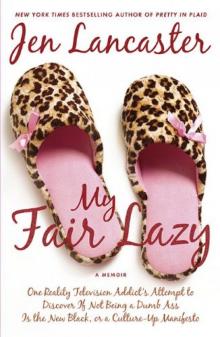 My Fair Lazy: One Reality Television Addict's Attempt to Discover
My Fair Lazy: One Reality Television Addict's Attempt to Discover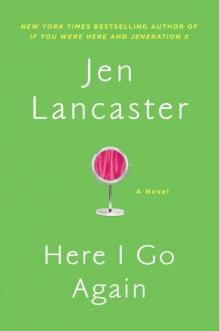 Here I Go Again: A Novel
Here I Go Again: A Novel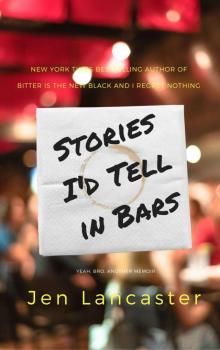 Stories I'd Tell in Bars
Stories I'd Tell in Bars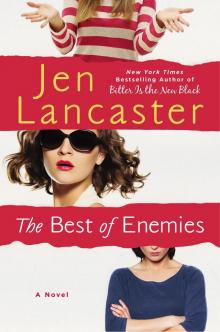 The Best of Enemies
The Best of Enemies Bright Lights, Big Ass
Bright Lights, Big Ass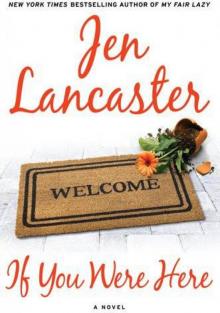 If You Were Here
If You Were Here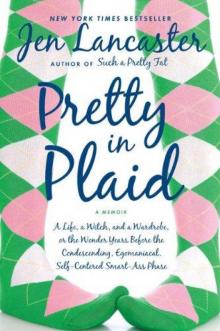 Pretty in Plaid: A Life, A Witch, and a Wardrobe
Pretty in Plaid: A Life, A Witch, and a Wardrobe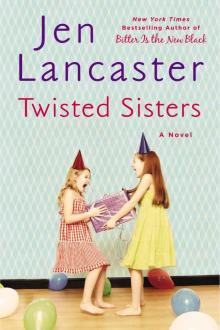 Twisted Sisters
Twisted Sisters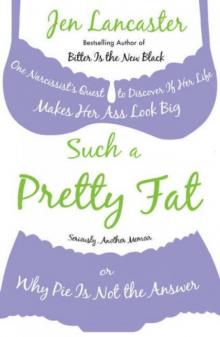 Such a pretty fat: one narcissist's quest to discover if her life makes her ass look big
Such a pretty fat: one narcissist's quest to discover if her life makes her ass look big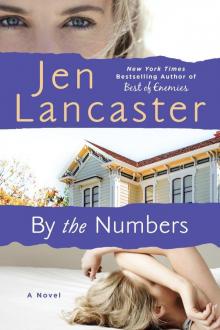 By the Numbers
By the Numbers Bright Lights, Big Ass: A Self-Indulgent, Surly, Ex-Sorority Girl's Guide to Why it Often Sucks in theCity, or Who are These Idiots and Why Do They All Live Next Door to Me?
Bright Lights, Big Ass: A Self-Indulgent, Surly, Ex-Sorority Girl's Guide to Why it Often Sucks in theCity, or Who are These Idiots and Why Do They All Live Next Door to Me? Jeneration X: One Reluctant Adult's Attempt to Unarrest Her Arrested Development
Jeneration X: One Reluctant Adult's Attempt to Unarrest Her Arrested Development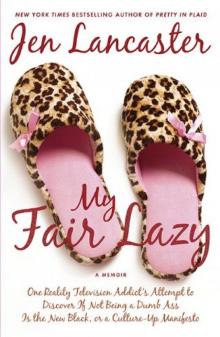 My Fair Lazy: One Reality Television Addict's Attempt to Discover If Not Being A Dumb Ass Is the New Black, or, a Culture-Up Manifesto
My Fair Lazy: One Reality Television Addict's Attempt to Discover If Not Being A Dumb Ass Is the New Black, or, a Culture-Up Manifesto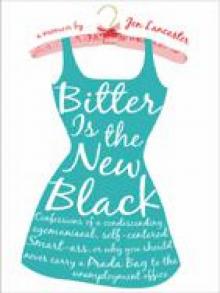 Bitter is the New Black
Bitter is the New Black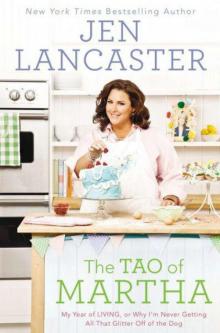 The Tao of Martha: My Year of LIVING
The Tao of Martha: My Year of LIVING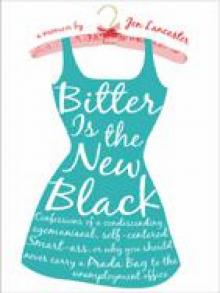 Bitter is the New Black : Confessions of a Condescending, Egomaniacal, Self-Centered Smartass,Or, Why You Should Never Carry A Prada Bag to the Unemployment Office
Bitter is the New Black : Confessions of a Condescending, Egomaniacal, Self-Centered Smartass,Or, Why You Should Never Carry A Prada Bag to the Unemployment Office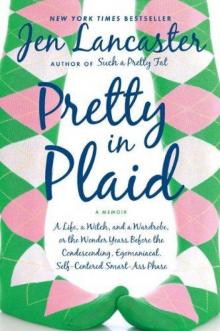 Pretty in Plaid: A Life, A Witch, and a Wardrobe, or, the Wonder Years Before the Condescending,Egomaniacal, Self-Centered Smart-Ass Phase
Pretty in Plaid: A Life, A Witch, and a Wardrobe, or, the Wonder Years Before the Condescending,Egomaniacal, Self-Centered Smart-Ass Phase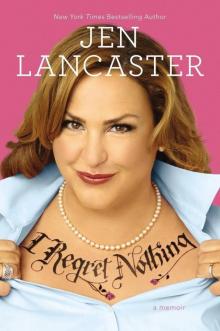 I Regret Nothing: A Memoir
I Regret Nothing: A Memoir If You Were Here: A Novel
If You Were Here: A Novel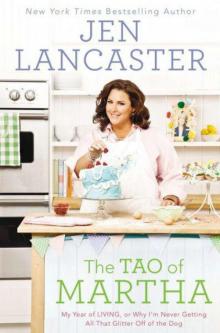 The Tao of Martha: My Year of LIVING; Or, Why I'm Never Getting All That Glitter Off of the Dog
The Tao of Martha: My Year of LIVING; Or, Why I'm Never Getting All That Glitter Off of the Dog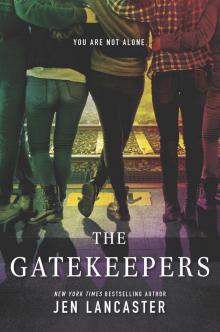 The Gatekeepers
The Gatekeepers